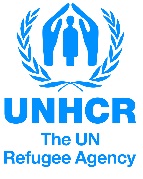‘Refugee’ or ‘Migrant’ – Word choice matters

‘Are the terms refugee and ‘migrant’ interchangeable? ’
No. These terms are too often used interchangeably, in particular in mainstream media and public discourse, which can lead to public confusion and misunderstanding. There is a key legal difference between the two. Refugees are people who have been forced to flee their home countries or “countries of origin” due to a genuine fear of violence, conflict or persecution. They have been forced to cross international borders to seek safety, which their own countries cannot provide. The term migrant is generally understood to describe people who choose to move to improve their lives, for example to seek work, education, to reunite with their families overseas etc. Migrants are distinctly different to refugees in that they can normally choose to return home where they will continue to receive protection from their government. Refugees do not have this choice. If they are forced to return, their lives and freedom will be threatened.
‘What rights are refugees entitled to that migrants are not?’
Migrants, as all other people are protected by international human rights law, which protects their dignity as human beings. Refugees are also protected by international human rights law, but with the added protection of the 1951 Convention related to the Status of Refugees and its 1967 Protocol. This entitles them to seek asylum in another country, and requires states to provide protection and assistance. The Convention enshrines fundamental humanitarian ideals. The most important element is that refugees should never be expelled or returned to situations where their life and freedom would be under threat. It is a universal human right to seek asylum.
‘In Niger, are there both refugees and migrants?’
Sub-Saharan Africa is home to over 4 million refugees. Niger hosts around 128,000 refugees fleeing conflict and violence in Mali and Nigeria and almost 500 refugees and asylum seekers from other countries. It also hosts around 70,000 returnees coming from Nigeria, and over 100,000 internally displaced persons in the Diffa region. At the same time, it is a major transit country for migrants from West and Central Africa, who are moving towards Libya, Algeria and the Mediterranean (approximately 100,000 per year). UNHCR and IOM are working together in Niger to identify those amongst the migrant flows who may qualify to apply for asylum in Niger. IOM provide assistance and information to stranded, returning or vulnerable migrants, while UNHCR assist asylum seekers to access legal procedures to be recognized as refugees. Often the distinction is not understood even by those fleeing their home countries.
‘Why is the language used so important – particularly in Europe?’
Those arriving to Europe are in fact a mixture of refugees and migrants however the majority are refugees who are entitled to protection. Under international law, refugees must be granted asylum and protection. Even if a refugee decides to move onwards from the first host country in which they arrive, it does not change their status as a refugee – they are refugees because of a lack of protection in their home country, this fact remains, regardless of the stages involved in their journey. It is essential that the two terms are not confused. Blurring the distinction between the two takes attention away from the specific situation of refugees - fleeing for their safety, and can undermine public support for refugees. All persons, including refugees and migrants should be treated with dignity and respect for their human rights however refugees should always have access to appropriate protection and assistance.
Words do matter. At a time with an unprecedented level of global displacement, and in particular in the climate of fear that is permeating societies, it is essential that we do not lose sight of the humanitarian ideals enshrined in the 1951 Refugee Convention.
For FAQs on Refugees and Migrants, see: http://www.unhcr.org/56e95c676.html

